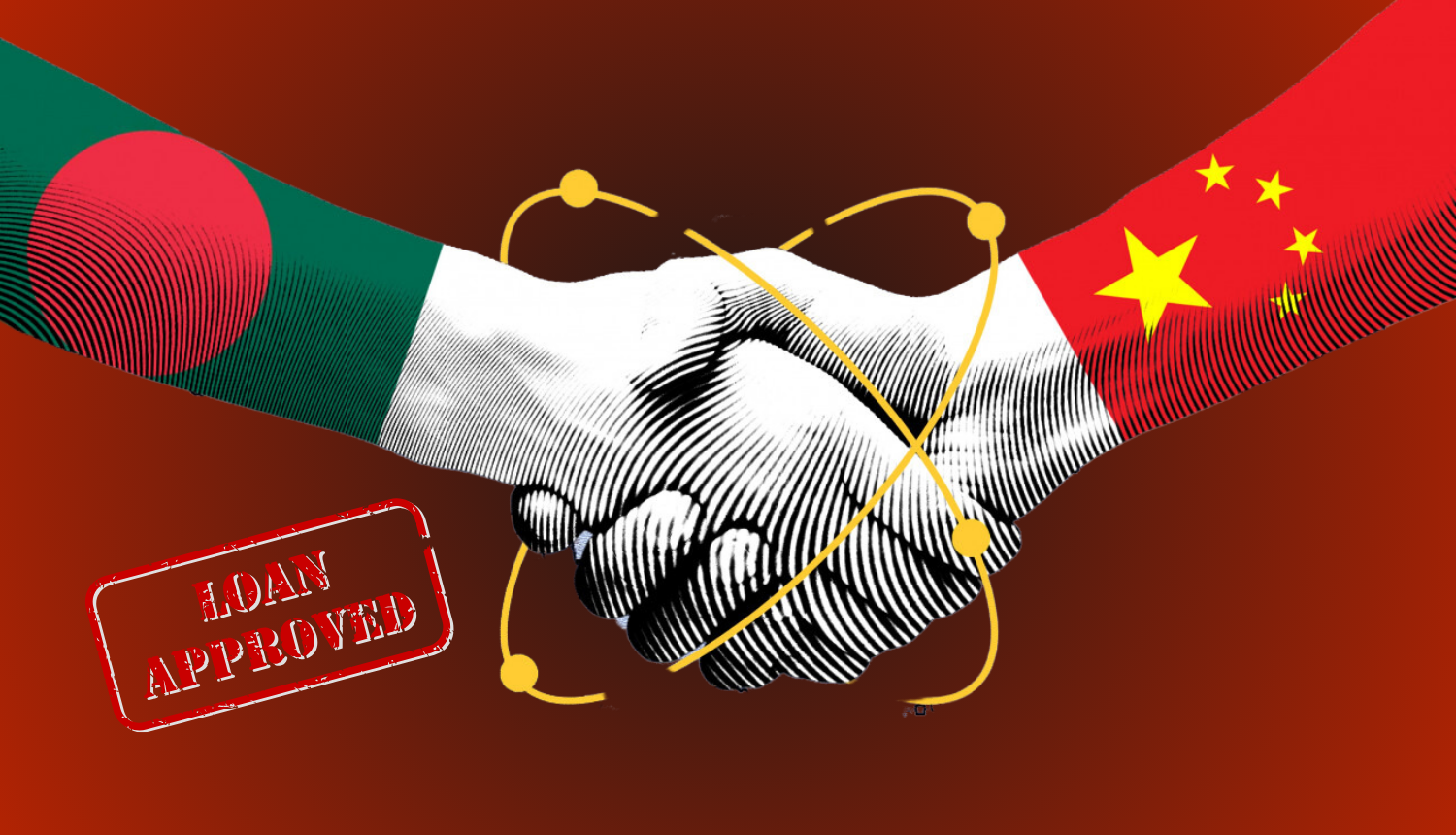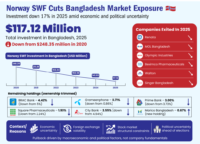Beijing has agreed in principle to extend the repayment period for Chinese loans and is considering a request from Dhaka to lower interest rates (China offers extended loan). The move aims to ease Bangladesh’s foreign debt repayment pressure reportedly.
Since 1975, China has disbursed $7.5 billion in loans to Bangladesh, making it the country’s fourth-largest lender after Japan, the World Bank, and the Asian Development Bank. During a bilateral meeting at the Diaoyutai State Guest House in Beijing, Foreign Adviser Touhid Hossain urged Chinese Foreign Minister Wang Yi to reduce interest rates on loans from 2-3% to 1%, waive commitment and management fees, and extend repayment terms from 20 to 30 years for preferential buyer’s credit and government concessional loans.
Acknowledging Bangladesh’s strong repayment track record, Wang agreed to extend the loan maturity period and promised to review the request for lower interest rates, according to a statement from the Bangladesh foreign ministry. Wang praised Bangladesh’s strategic significance in China’s neighborhood diplomacy.
Read more: eLAP Transforming The Loan Process For Bangladesh’s SMEs
Hossain also met Luo Zhaohui, chairman of the China International Development Cooperation Agency, to discuss concessional loans and grants. Luo responded positively to Hossain’s request to increase funding for Bangladeshi projects, suggesting that China may consider larger projects, with some grants included to lower the average interest rate. He asked Bangladesh to provide a list of priority projects.
The meetings highlighted potential Chinese financing for metro rail systems and the Southern Infrastructure Development Initiative (SIDI) in Bangladesh.
China reaffirmed its commitment to granting duty-free and quota-free access for Bangladeshi products for three years after the country’s graduation from the least-developed country bracket in 2026. Additionally, Beijing announced its decision to designate three to four hospitals in Kunming for treating Bangladeshi patients and welcomed Bangladesh’s proposal to establish a tertiary-level Chinese hospital in Dhaka, marking 50 years of diplomatic ties.
Both nations expressed interest in commemorating this milestone with a series of activities.
During the talks, Wang encouraged Bangladesh to consider joining President Xi Jinping’s Global Development Initiative, Global Security Initiative, and Global Civilisation Initiative. Bangladesh expressed its intent to examine these proposals while maintaining engagement with China.
Reiterating support for Bangladesh’s stability, reforms, and development efforts, Wang emphasized the importance of cooperation under the Belt and Road Initiative. China assured continued assistance for projects that benefit the Bangladeshi population, including the Dasherkandi sewage treatment plant, Mongla Port modernization, digital connectivity, and 4G expansion.
Bangladesh sought clarity on China’s proposed mega-hydropower dam on the Yarlung Tsangpo River in Tibet. Chinese officials assured that downstream countries would not be affected as the project would not involve water withdrawal or consumption. However, there was no discussion on the Teesta river management project.
The Rohingya crisis was also on the agenda, with both sides pledging to work toward a durable solution. China reaffirmed its engagement with Myanmar to address the issue and promote regional stability.
Hossain reiterated Bangladesh’s adherence to the “One China Principle” and support for UNGA Resolution 2758. The two countries signed an implementation plan for a memorandum of understanding on hydrological data exchange for the Yaluzangbu-Jamuna rivers.
Finally, Hossain met Liu Jianchao, minister of the international department of the Chinese Communist Party, to discuss development projects. Liu pledged continued support for Bangladesh’s interim government and a peaceful transition to democracy through a fair and participatory election.
For more updates, be with Markedium.










































Leave a comment